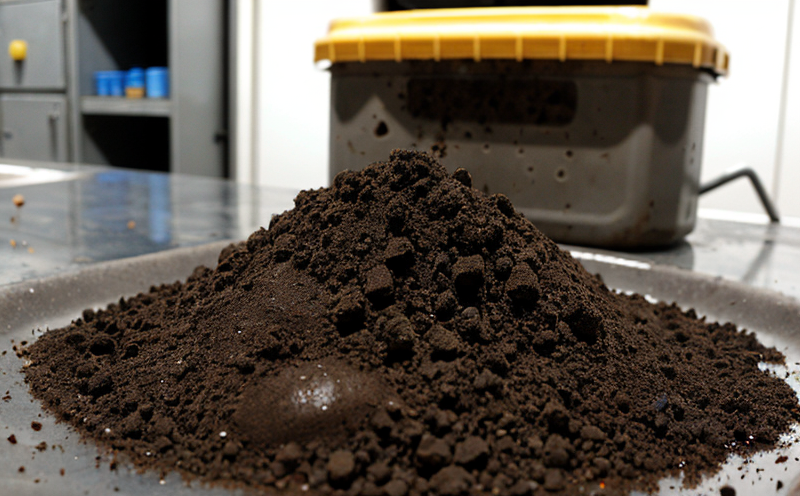Biopolymer Residue Screening
In recent years, there has been a significant shift towards sustainable materials in various sectors, including food, pharmaceuticals, and manufacturing. Amidst this trend, biopolymers—biodegradable polymers derived from natural sources—are gaining prominence due to their environmentally friendly properties. However, the presence of residual contaminants or impurities can compromise product quality and safety. This is where our Biopolymer Residue Screening service comes into play.
Our comprehensive screening process ensures that biopolymers meet stringent purity standards, thereby enhancing trust in sustainable materials used across industries. By leveraging advanced analytical techniques, we provide detailed insights into the levels of contaminants present within these materials. This not only helps our clients maintain regulatory compliance but also supports their commitment to environmental responsibility.
For instance, during a typical screening process, raw biopolymers undergo rigorous analysis using state-of-the-art equipment such as Gas Chromatography-Mass Spectrometry (GC-MS), Liquid Chromatography-Tandem Mass Spectrometry (LC-MS/MS), and Fourier Transform Infrared Spectroscopy (FTIR). These methods allow us to detect even trace amounts of unwanted residues or contaminants that might otherwise go unnoticed.
The importance of biopolymer purity cannot be overstated, particularly when these materials are used in direct contact with food products or pharmaceutical formulations. Even small traces of impurities can lead to significant health risks or regulatory non-compliance issues. By offering reliable and accurate residue analysis services, we help our clients avoid such pitfalls.
Our laboratory adheres strictly to international standards like ISO 17025 for proficiency in analytical methods, ensuring that every test conducted meets the highest quality benchmarks. This commitment extends beyond just compliance; it reflects our dedication to delivering robust data and actionable insights that drive informed decision-making within your organization.
Whether you're a manufacturer looking to ensure product safety or an R&D engineer exploring new sustainable solutions, our Biopolymer Residue Screening service offers the precision and reliability needed for successful outcomes. Let us help you navigate this critical aspect of biopolymer development and manufacturing with confidence.
Applied Standards
| Standard | Description |
|---|---|
| ISO 17025:2017 | The international standard for proficiency in analytical methods, ensuring accurate and reliable test results. |
| ASTM D843-19 | Standard specification for biobased content of solid carbonaceous fuels derived from biomass. |
| EN 12650:2017 | European standard defining requirements and test methods for the determination of biodegradability in composting conditions. |
Scope and Methodology
The scope of our Biopolymer Residue Screening service encompasses a wide range of contaminants that could potentially affect the quality and safety of biopolymers. These include but are not limited to heavy metals, pesticides, herbicides, solvents, and other synthetic compounds.
| Methodology | Description |
|---|---|
| Sample Preparation | Involves thorough cleaning and conditioning of samples to ensure accurate measurements. |
| Analytical Techniques | We employ multiple analytical techniques including GC-MS, LC-MS/MS, FTIR, and others for comprehensive residue profiling. |
| Data Analysis & Reporting | Comprehensive evaluation of raw data to produce detailed reports that include both findings and recommendations. |
Environmental and Sustainability Contributions
The increasing emphasis on sustainability has led to a growing demand for biopolymers as alternatives to traditional petroleum-based plastics. However, ensuring that these materials are free from harmful residues is crucial for their successful integration into sustainable practices.
Our Biopolymer Residue Screening service plays an essential role in supporting this transition by providing critical data on the purity of raw materials before they enter production processes. By identifying and quantifying any potential contaminants early in the supply chain, we enable manufacturers to make informed decisions about process adjustments or sourcing changes.
This not only enhances the overall quality and safety profile of end products but also supports broader environmental goals by reducing waste generation and promoting circular economy principles. Through our work, we contribute directly to fostering more sustainable practices across industries.





